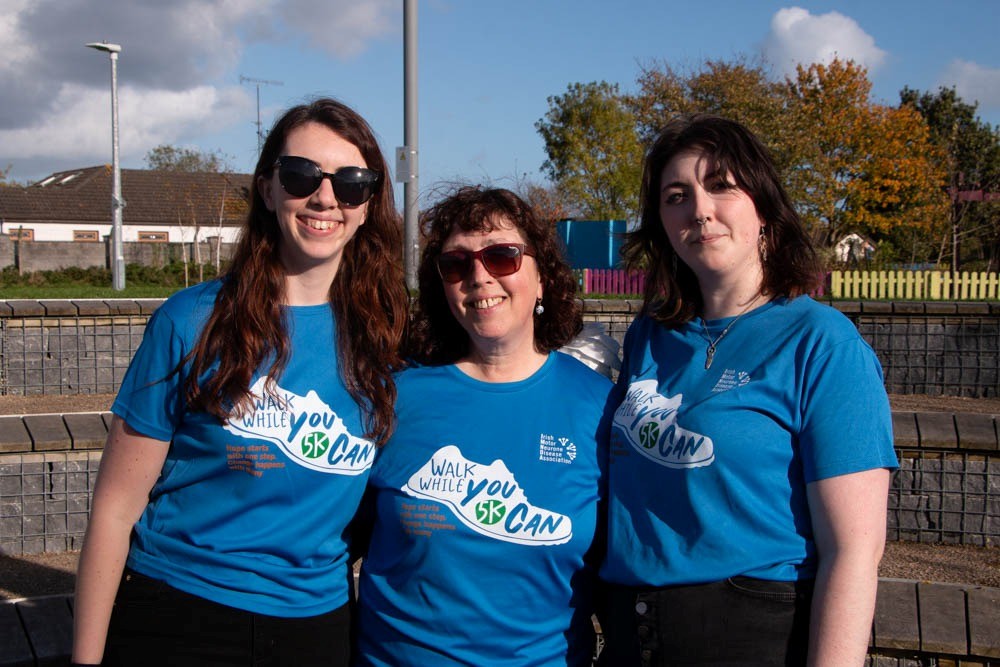 |
Raised so far
€101,135 |
 |
Total Entrants
64 |
Please Walk While You Can for our MND community this October 25th.
Together we can make a real difference.
"Last October, while coming to terms with my diagnosis, I decided to host the IMNDA ‘Walk while you Can’ fundraiser. I had publicly announced to my friends and community in April that I had Motor Neurone Disease.
By October, my condition had advanced and I thought it would be a positive way of getting family and friends together, to let them see I was doing well, and raise vital funds for the association.
Over 200 people turned up from around the country. My MND community group joined me and we felt the love, the support and the reassurance that we were not alone.
I actually didn't think I could do the 5k walk. How wrong I was! I walked the 5k. I'm still walking, slower and maybe not as far, but still going.
This October join me for the “Walk while you can” campaign. Help us raise awareness and vital funds.
The word “Community” includes Unity. Unite with us all around Ireland. Come and help the IMNDA to continue their vital work. We want you! We need you. We are you!”
Catriona Dixon, Living with MND

Pictured: Catriona and her daughters at their Walk While You Can event in October 2024, Wexford.
How it works
1. Register to Walk
This couldn’t be simpler! Set up your Walk While You Can fundraising page, add your story, pics some photos and when and where you are walking.
2. Invite and Share
Invite your friends and family to sponsor you, or join your team and walk with you! By posting on social media and emailing people, it helps us spread the word.
3. Have fun and raise funds!
Once your page is setup you can do it your way... check out our Tips & Tools for some inspiration on maximising funds raised and ensuring your event is a huge success!

“Phenomenal. Great man, Tony. In awe and admiration of this tremendous initiative. Positivity in the face of adversity. That's the measure of this man. Great to see superb, and indeed numerous, people and organisations behind him and Walk While You Can project”
Mary Macken

"The Walk While You Can event in the Phoenix Park in 2019 was superbly organised and thoroughly enjoyable. There was a lovely feeling of camaraderie and togetherness for a common cause. It was also great to see everyone staying behind afterwards for a chat in the beautiful sunshine".
Norman Hughes

"It was a beautiful and wonderful event. Apart from it being a successful fundraiser it must have heartened the COOTE Family to see so many Tony followers celebrating his legacy".
Conn O'Brien
Connect with us
#WalkWhileYouCan
Have a look at some of our Walk While You Can images from previous years.





